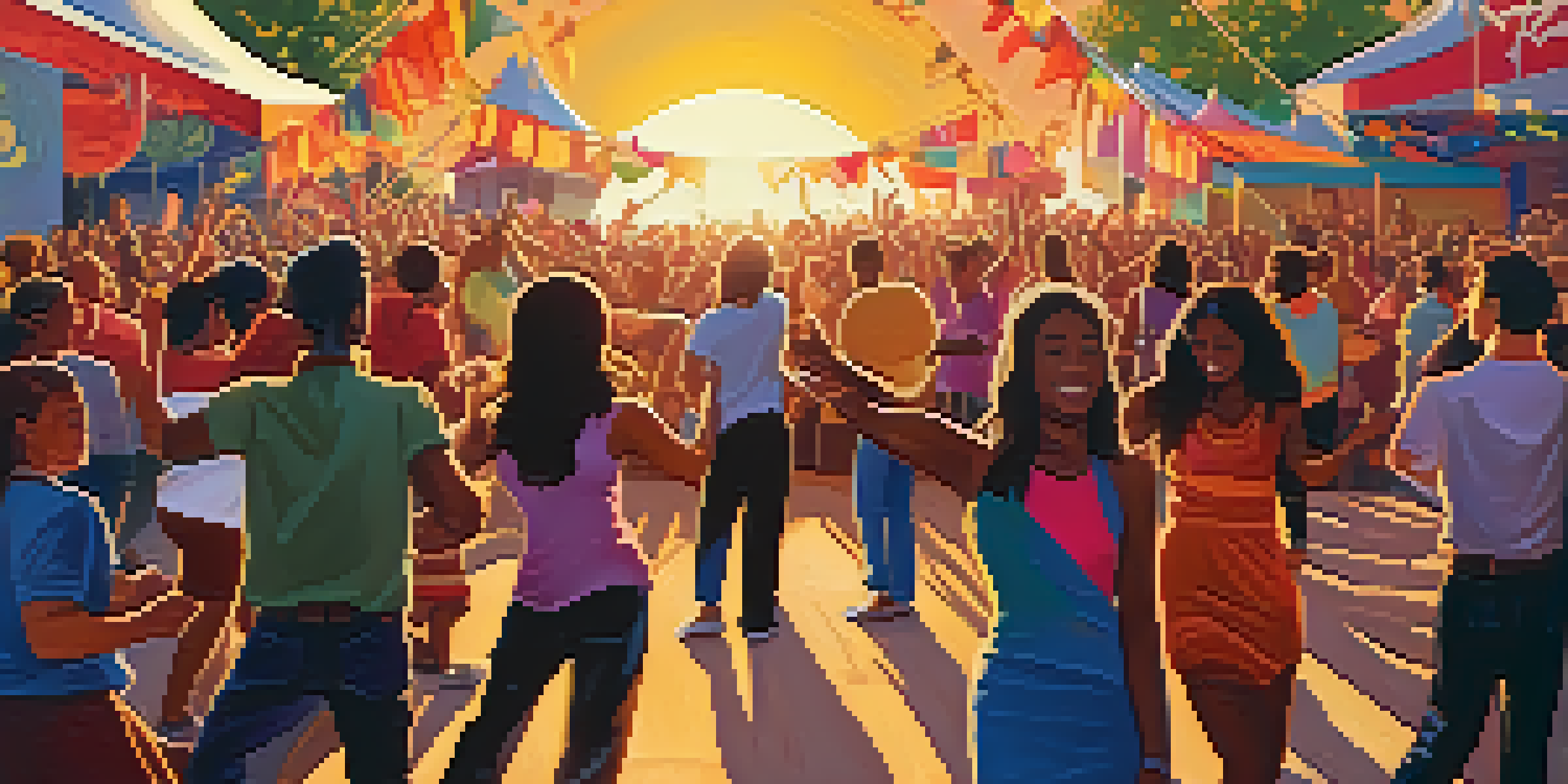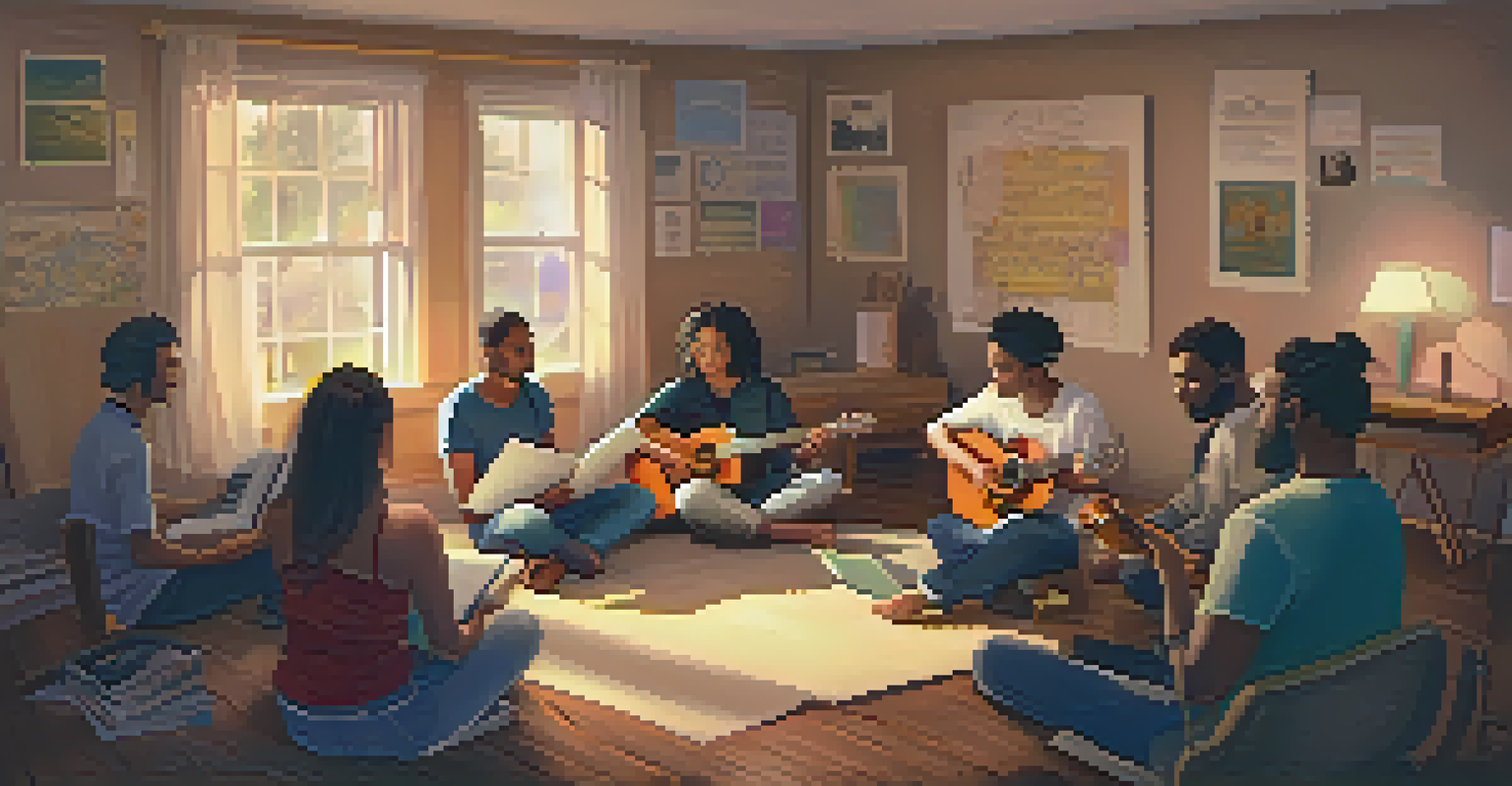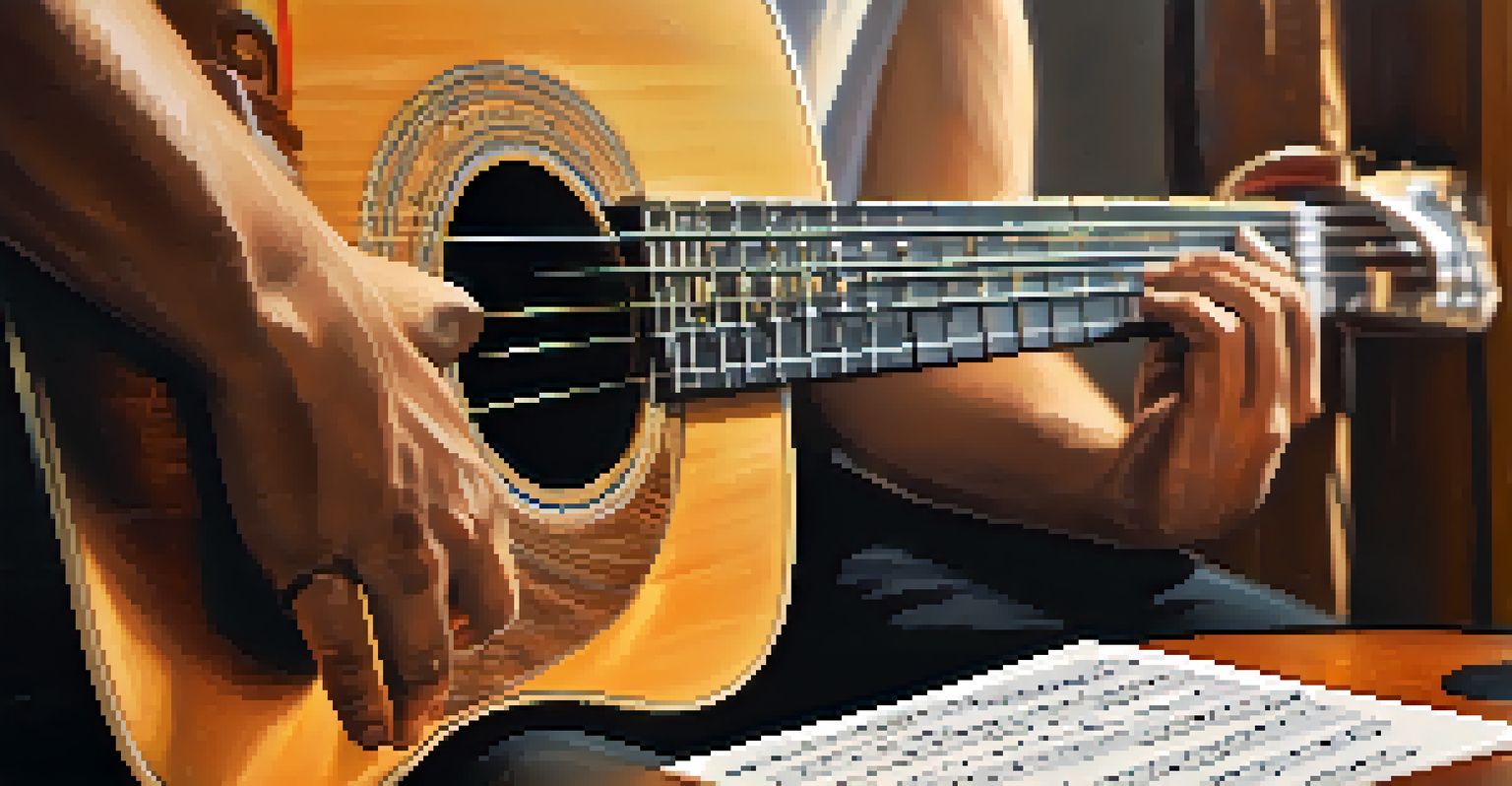The Power of Lyrics: Storytelling Through Community Music

Understanding the Role of Lyrics in Music
Lyrics are more than just words set to a melody; they are the heart of a song. They convey emotions, tell stories, and can resonate deeply with listeners. Just like a good book, a well-crafted song can transport you to different times and places through its narrative.
Music can change the world because it can change people.
In community music, lyrics become a shared language, reflecting the experiences and feelings of a group. They often encapsulate local histories, struggles, and triumphs, allowing members to connect with one another on a profound level. This communal aspect enriches the storytelling, making it relatable and impactful.
Moreover, the power of lyrics lies in their ability to inspire action and provoke thought. Songs often serve as catalysts for social change, encouraging listeners to reflect on their own circumstances and those of their community. When lyrics align with collective experiences, they can amplify voices that might otherwise go unheard.
The Impact of Community Music on Local Stories
Community music acts as a vessel for local stories, weaving together individual narratives into a collective tapestry. Each song can reflect the unique culture and history of a community, creating a sense of belonging and identity. This storytelling through music helps to preserve traditions and share them with future generations.

For instance, folk songs often originate from specific regions, capturing the essence of the people and their environment. These songs can recount historical events, celebrate local heroes, or simply express the joys and sorrows of daily life. By sharing these stories, communities strengthen their ties and foster a shared understanding.
Lyrics Connect Communities
Lyrics serve as a shared language that reflects and strengthens the bonds within communities, telling their collective stories and experiences.
Additionally, community music events, such as open mic nights or festivals, provide a platform for local artists to showcase their work. This not only highlights diverse voices but also encourages collaboration and creativity. As artists share their stories, audiences are invited to engage with the narratives, making the experience even more enriching.
Lyrics as a Reflection of Social Issues
Many community songs address social issues, providing a voice to those affected. Lyrics can shine a light on topics such as inequality, injustice, and environmental concerns, prompting listeners to reflect on their own roles within these issues. Through storytelling, music can inspire empathy and understanding, bridging gaps between different experiences.
The power of music makes all the difference in the world.
For example, protest songs have historically played a crucial role in social movements. They articulate the struggles faced by marginalized groups and galvanize support for change. When lyrics resonate with listeners, they become rallying cries, uniting individuals in a common cause.
In this way, community music not only entertains but also educates. It encourages listeners to confront uncomfortable truths and fosters dialogue around pressing issues. By sharing stories through lyrics, communities can advocate for change and inspire others to take action.
The Healing Power of Music and Lyrics
Music has a unique ability to heal, and lyrics play an essential role in this process. In community settings, songs can provide solace and comfort during challenging times, helping individuals articulate their emotions and experiences. This therapeutic aspect of music fosters resilience and promotes mental well-being.
For instance, community choirs often serve as safe spaces for individuals to express themselves through song. The act of singing together can be cathartic, allowing participants to release pent-up feelings and connect with others. Lyrics that express shared struggles can create a sense of solidarity and support.
Music as a Catalyst for Change
Community songs often address social issues, using powerful lyrics to inspire action and provoke thought among listeners.
Moreover, songwriting workshops can empower individuals to share their stories through their own lyrics. This creative outlet not only promotes healing but also encourages self-discovery and personal growth. When people see their experiences reflected in song, it validates their feelings and fosters a sense of belonging.
Collaborative Songwriting: A Community Effort
Collaborative songwriting is a powerful way to harness the collective creativity of a community. When individuals come together to write lyrics, they share their diverse perspectives and experiences, resulting in richer storytelling. This collaborative process fosters connections and builds trust among participants.
Workshops and community projects often encourage participants to contribute their own verses or ideas, leading to a shared creation that represents the whole group. This not only enhances the final product but also empowers individuals by valuing their contributions. It's a beautiful reminder that everyone's voice matters.
As these collaboratively written songs are performed, they become a celebration of community spirit. The audience witnesses the synergy of individual stories coming together, reinforcing the bonds that unite them. The result is a powerful piece of art that resonates on multiple levels, reflecting the heart of the community.
The Role of Technology in Sharing Community Music
In today's digital age, technology has transformed how community music is created and shared. Social media platforms allow artists to reach wider audiences, spreading their stories beyond local borders. This increased visibility can attract support and collaboration from diverse communities around the world.
Moreover, online music platforms enable the recording and distribution of community songs with ease. Artists can share their work instantly, allowing listeners to connect with their lyrics anytime, anywhere. This accessibility fosters a global appreciation for local stories and cultural expressions.
Technology Amplifies Local Voices
Digital platforms enable community artists to share their music globally, fostering appreciation for local stories and cultural expressions.
Furthermore, virtual collaborations have become increasingly popular, allowing musicians from different backgrounds to create together. This blending of influences can lead to innovative sounds and fresh narratives, enriching the storytelling process. Technology thus plays a vital role in amplifying the voices of community artists and their stories.
Celebrating Community Through Music Festivals
Music festivals serve as a vibrant celebration of community, bringing people together to share their love for music and storytelling. These events often showcase local talent, allowing artists to perform their songs in front of enthusiastic audiences. This not only supports musicians but also strengthens community bonds.
Festivals create an atmosphere of unity, where attendees can experience a variety of narratives through different musical styles. From folk to hip-hop, each genre offers unique insights into the community's culture and experiences. This diversity enriches the festival experience and fosters appreciation for different perspectives.

Additionally, music festivals often incorporate workshops and discussions, allowing participants to delve deeper into the stories behind the songs. This engagement encourages dialogue and connection among attendees, transforming a simple event into a meaningful exploration of community identity and values.